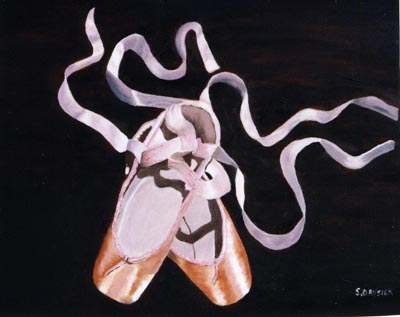|
By Sheila Orysiek
 SAN DIEGO—One of my favorite parts of the Torah is Exodus 32:22. This is the portion when Moses returns from his sojourn on Mt. Sinai to receive the Ten Commandments only to find that the people have been worshipping a golden calf. When questioned about this, Aaron exemplifies with his answer what all of us at one time or another have done - or attempted to do - ameliorate our own participation in an unacceptable act. SAN DIEGO—One of my favorite parts of the Torah is Exodus 32:22. This is the portion when Moses returns from his sojourn on Mt. Sinai to receive the Ten Commandments only to find that the people have been worshipping a golden calf. When questioned about this, Aaron exemplifies with his answer what all of us at one time or another have done - or attempted to do - ameliorate our own participation in an unacceptable act.
According to the translation of Dr. Richard Elliott Friedman’s “Commentary on the Torah,” Aaron explains to Moses that he took the gold the people gave him, threw it in a fire and voila! - a golden calf “came out.” He was innocently trying to help the people who feared Moses had disappeared forever and wasn't coming back. His solution to their fears, according to his excuse, was to collect gold and throw it into a fire. It wasn’t his fault that somehow a golden calf emerged.
Right from the get-go - like Adam trying to wiggle out of his eating of the forbidden apple - people will say almost anything to fend off owning the guilt they’ve earned. But we are not alone. As I recall, Koko the gorilla who learned to communicate in sign language, when asked about something she had done which she knew was wrong - lied about her action.
My cat, Margot, knew that cookies on a tray placed on the coffee table awaiting guests were off limits. But, she took daintily took one careful so as not to disturb the others, walked directly behind a drape and ate it. Then she emerged, did not go through her usual face/paws cleanup (that would have made the crime obvious) and proceeded to walk around the house with a particularly innocent look upon her feline face. When I confronted her, she looked around to see if I was perhaps addressing another cat.
As living beings we will do almost anything to defend our self-image - even lying to ourselves about something we’ve done. And told often enough that lie becomes our reality.
Not only do individuals lie to protect self image, but so do families, societies and nations. In a book Embracing Defeat, Japan in the Wake of World War II by John W. Dower, the author delineates the politically expedient overnight transformation of the Emperor Hirohito from arch villain to hero of democracy. Because it was deemed important for the Emperor to remain in place to give the people a sense of continuity, everyone lied and ended up believing the lie: the Japanese people, Japanese officialdom, General MacArthur, American officials and eventually the American people.
The difficulty of uncontrovertibly owning up to a personal error can be experienced in a simple exercise. Think about the worst thing you’ve done, stand in front of a mirror - look into your own eyes and say without any caveats: “When I did (insert event here) I was wrong.” There will be an almost automatic temptation to ameliorate what was done - but the intent of the exercise is to block any and all excuses and simply own up to: “I was wrong.” Tough stuff.
The role of the excuse in our lives is so pervasive we even recognize some excuses as being “classic” such as: “The dog ate my homework.” I actually had that happen one time but because that excuse is such a classic - I couldn’t use it even though it was true.
Some time ago I wrote a dance review in which I did not as fulsomely praise a dancer as she thought I might have had I known of circumstances which adversely affected her performance. She contacted me and gave me a list of what had happened - excuses which she actually wanted printed into the program notes given to the audience. She also wanted this explained by the announcer to the audience. She
Go to the top of right column |
|

should have known better. In her years of study, somehow she missed the cardinal lesson: in the ballet there are no excuses. None at all. Zero.
If illness is the excuse - one shouldn’t be dancing. If one is injured - one shouldn’t be dancing. If the floor is slippery, deal with it. It is not the problem of the audience if the dancer’s rehearsal time was curtailed or the music the wrong tempo, or the dancer’s cat died that afternoon. If the pointe shoe ribbons come untied during a performance it is not because the fates are playing havoc with ribbons, it’s because the ribbons weren’t tied securely enough. This lesson is learned (drummed in) from the first ballet class.
One of my ballet teachers continuously lectured: “A poor dancer blames her shoes.” Well, there was one day - just after she had given this lecture once again - something occurred that really really was because of my shoes! I suddenly started falling out of tour jetés - turning split jump - which doesn’t happen to an advanced dancer. But it was happening - and when I looked down at my shoes I could see the elastic was pulling loose from the stitching. The loosened shoe was affecting the impelling force from my foot as I pushed into the jump. When my teacher scowled at me and asked why on earth I was suddenly falling out of this particular jump - I dared not tell her it was my shoes.
Had this been on stage I would have had to deal with it by altering the preparatory take off into the jump. Since it was in class rather than on stage, I waited until an appropriate moment and changed the shoe. The thing I did not do was to tell the teacher that it was the shoe - not me - which was at fault. Even though in this particular case, it was the shoe - in actuality the fault was still mine. I had sewed that elastic onto the shoe many weeks before and I should have checked to make sure it was still secure.
So, in ballet class one learns an important lesson. Even when the shoe is at fault - it’s the dancer who used that faulty shoe. How many faulty shoes do we try to explain away as we go through the day?
Perhaps remembering that “A poor dancer blames her shoes” could lead to “Approach life as a dancer approaches the barre - with grace and purpose.”
I hope this article doesn't contain any typos – but if it does – I didn't do it.
**
Letter on Gelsey Kirkland article
Thank you, Sheila. That is a wonderful article. Your writing is so moving and insightful. I will pass it on to Steven and Betsey.
Jo Anne Emery
City Ballet, San Diego
|
|

